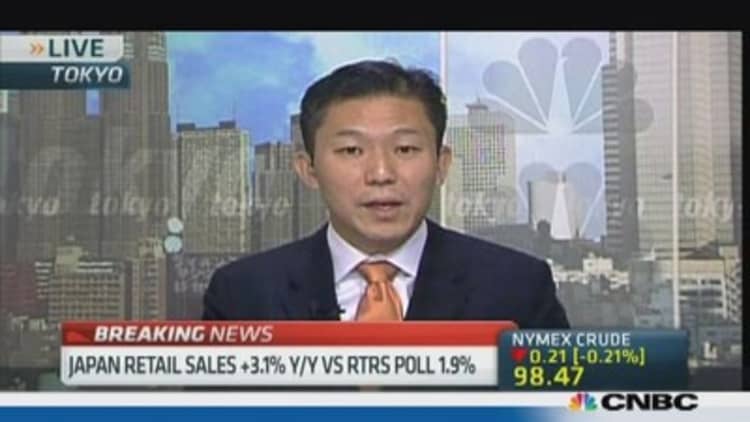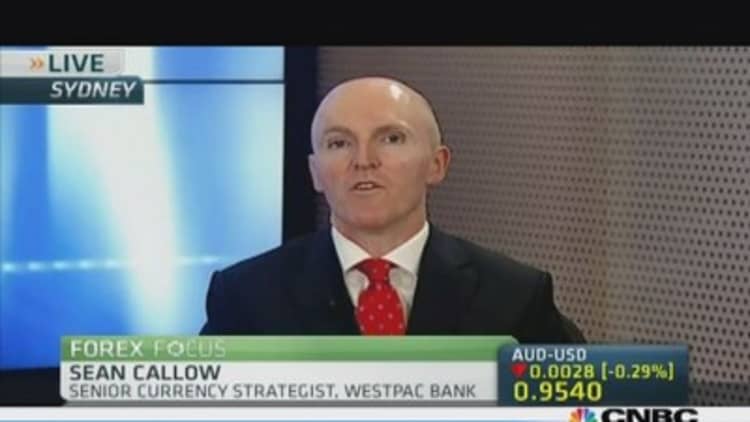Japanese retail sales rose 3.1 percent from a year earlier in September, official data showed on Tuesday, a sign a personal spending is continuing to support the nation's economy.
The increase was much higher than the 1.9 percent rise analysts polled by Reuters were expecting, and marked a second straight month of gains. Spending on luxury goods, food and automobiles led the rise.
(Read more: Is Japan finally defeating its deflation demons?)

Meanwhile, household spending also logged a better-than-expected gain, rising 3.7 percent in the month from a year earlier, the strongest reading in six months and compared with the 0.5 percent increase analysts were expecting. This reverses the 1.6 percent on-year decline in August.
A strong labor market is helping consumer sentiment, analysts say. The jobless rate for September, also released on Tuesday, came in at 4 percent, in line with expectations and down slightly from 4.1 percent in August.
(Read more: Why Japan stocks may storm higher even if the yen firms)
Analysts attribute the positive data to Abenomics, or the aggressive economic policies embarked by Prime Minister Shinzo Abe earlier this year to revive the deflation-plagued economy.

"I'd say Abenomics is making pretty good progress so far. Monetary easing is working quite well to weaken the yen; we are making Japan boom in the current economy. However, there's a the third arrow remaining and we need that to happen for Japan to keep growing," said Takuji Okubo of Japan Macro Advisors.
Currency markets showed little reaction to the data, with dollar-yen little changed at 97.57.
(Read more: Abenomics speeds corporate investment, but not in Japan)
"These monthly numbers have not been having an impact on the yen," said Sean Callow, senior currency strategist at Westpac Bank.
"Mostly because the BOJ [Bank of Japan] seems to be so firmly set in its policy stance at this point so if it's not going to change the BOJ's mind in terms of policy-setting, then you wouldn't want to be moving dollar-yen too farm."
— Follow CNBC on Twitter: @CNBCWorld

